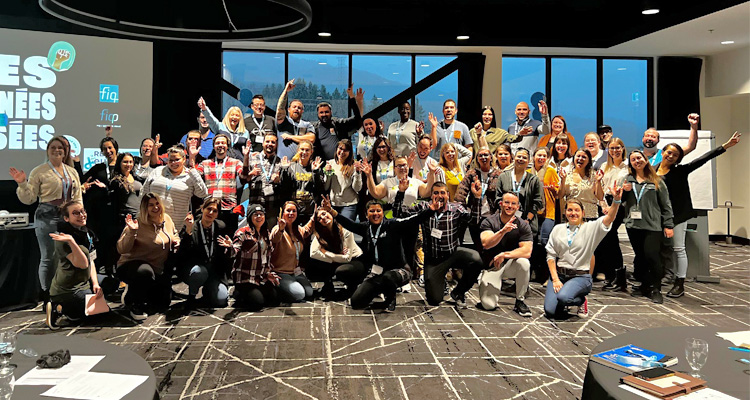
Getting inspired to fight better
Mobilizing to win. But to win what and win it how? And at what price? Here are the questions that over fifty healthcare professionals between the ages of 18 and 35 asked at the last Youth Network.
For many, being able to organize and create a union is an acquired right, while for others, likely the majority of people in the world, the challenges are still far too big. The Naujawan Support Network (which means ‘youth’ in Punjabi) knows something about this. The name was chosen for the organization because historically, Indian revolutionary movements were led by young people, but also because several young Punjabi workers who are in situations of exploitation here in Canada decided to unite to fight against their employers.
With unpaid salaries, rough working conditions and administrative vulnerabilities due to foreign worker or student statuses, many of these young people end up in very precarious situations. Since they don’t know their rights, they are at the mercy of people who are taking advantage of them.
How do you mobilize when it could mean losing your migration status or your schooling? Naujawan would answer: with information, education and constant mobilization.
This perspective drives the labour organization’s actions, which, despite its modest means, manages to save jobs, hold wrongful employers accountable and restore dignity to workers. Simran Dhunna, a community organizer for the Naujawan Support Network, says: “Mobilization isn’t possible without the political education to shed light on the systemic causes that facilitate the exploitation of vulnerable people.” This is what motivates the members of this front-line organization day after day. You might think that the pandemic would have thrown them off track but on the contrary, it helped to highlight the hard reality for workers who don’t have the right to work remotely.
What does a labour support network based in Brampton, Ontario have in common with healthcare professionals? The option and ability to organize. Defending rights inevitably involves mobilization, whether for migrant workers or for healthcare professionals. No one is going to do it for them. It also means you have to take risks, go back to basics and meet with your peers, while leaving no one behind.
Walking in the footsteps of those who went before us
Once mobilization has been identified as the only collective battle tool, the participants in the Youth Network realized that they are part of a line of courageous, combative and tenacious women. Whether it be demanding healthcare access for everyone, parental leave, the eradication of hunger, or holding not one but two illegal strikes, yesterday’s healthcare professionals paved the way for those who followed.
As such, thanks to an intergenerational discussion with Michèle Boisclair, nurse and vice-president on the FIQ Executive Committee from 1993 to 2014, participants learned more about their labour organization and gained a better understanding of the power of mobilization. How can we truly grasp the importance of unionism if we don’t know the full scope of the gains it has helped us achieve?
To make an impression, Ms. Boisclair spoke about the first nurses’ strike. “In 1976, at the end of a strike that would last five weeks, nurses saw their salary increase by 44%. At that time, 5,500 nurses from 29 hospitals in Quebec mobilized and won. […] We can be scared, we can be tired, but we can’t give in. Especially not during these uncertain times.”
Whether it be for healthcare professionals in particular or women in general, gains are fragile. Never before have women’s rights been as threatened as they are now. Just think about the right to abortion or the rise of misogynistic, racist and homophobic rhetoric. Socioeconomic rights are no exception. Just think of the Rand Formula which is constantly challenged by politicians who no longer even try to hide their anti-union sentiments.
Mobilizing for negotiations
After years of budget cuts in health care and the ongoing effects of the pandemic, it was imperative that we broach the topic of the current negotiation of the healthcare professionals’ collective agreement. As such, two elected members of the provincial negotiating committee spoke with the Network participants and emphasized how important it is that everyone plays a role in this crucial period for the organization.
Like Naujawan said: “No one is going to come and save us.” So we must collectively look at the means of action available to us and it is key that we get involved at every level. This way, we will be able to live up to those who inspired us and who helped us get to a place where everything becomes possible.